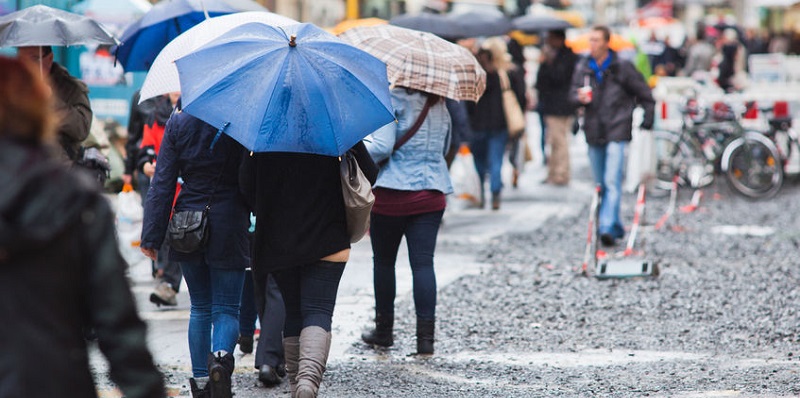Water tracked in by people who have been walking in the rain can make floors slick, leading to slip-and-fall accidents.
Colorado Property Owners Must Take Reasonable Measures to Reduce the Risk of Slipping and Falling
Spring showers can lead not only to flowers but also to slip-and-fall accidents on slick, wet surfaces, inside and outside.
Who’s to blame?
People who slip and fall during rainy weather might be quick to blame themselves or just shrug it off, assuming that a property owner cannot be held responsible for an accident involving wet conditions out of his or her control. But there are actually many instances when an owner can be held at least partially responsible for a slip-and-fall occurring during bad weather, particularly if there is a pattern of negligent or careless maintenance of the property.
In Colorado, the Premises Liability Act (PLA) establishes the criteria necessary to determine whether a landowner is responsible for an injury to a third party. If a potential hazard is recognized but no action is taken, the property owner could be considered negligent for failing to remove the hazard and liable for the resulting injuries. According to the PLA, the duty of a landowner depends on whether the injured person was a trespasser, a licensee, or an invitee. The highest standard of care is owed to an invitee, and the lowest to a trespasser.
Duties of Colorado Property Owners and Injured Parties
While we can’t realistically blame someone if their steps are wet while it is raining, it is reasonable to expect property owners to address problems, including wet surfaces, after the rain has let up. Property owners have the responsibility to maintain their property and keep it reasonably safe inside and out, regardless of the weather conditions. In rainy weather, this may mean providing mats on slippery walkways or cones on wet floors where rain and slush have gotten tracked in.
But individuals also have a duty to be careful in wet, slippery conditions, to be aware of their surroundings, and to watch where they are going to avoid injury. Colorado follows the rule of modified comparative fault, meaning that an injured person’s damages will be reduced by the amount of his or her own comparative fault. As long as your fault is less than 50 percent, you will still be able to collect compensation. However, if your fault is determined to be 50 percent or more, you will likely be barred from collecting anything from the property owner.
Like other slip-and-fall injuries, those occurring during rainy weather may be preventable, as long as the proper precautions are taken. While a property owner is not necessarily responsible for injuries suffered by someone who slips in a puddle on their property, if there is evidence that the area in question was defective, poorly maintained, or hazardous, the injured person might have a viable claim against the landowner.
Did you suffer serious injuries in a slip-and-fall accident that occurred during rainy conditions? Contact Colorado personal injury attorney Dan Rosen to discuss your injuries and potential premises liability claim.

